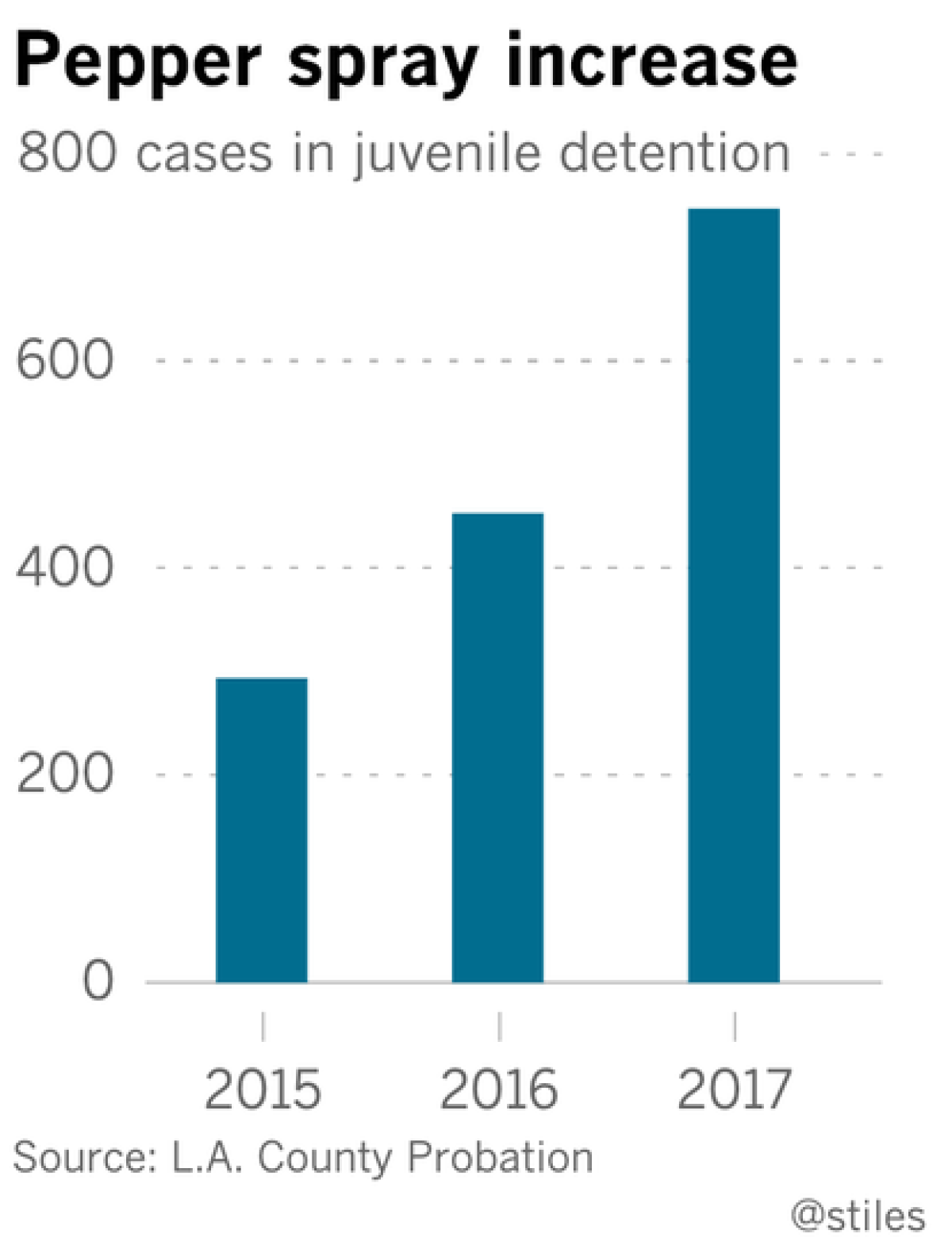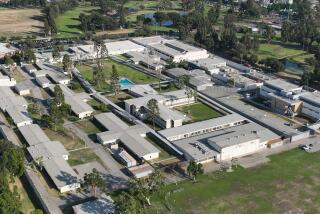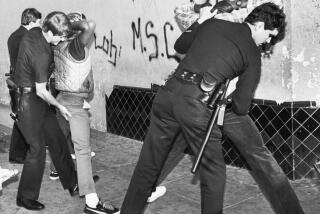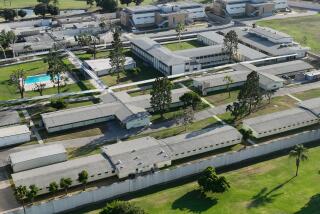L.A. supervisors ban pepper spray in juvenile detention halls after reports of abuse
Two weeks ago, an independent watchdog told the Los Angeles County Board of Supervisors that it should consider banning pepper spray at juvenile detention facilities, citing examples of the inappropriate and avoidable use of the spray by officers.
It didn’t take long for the board to act.
On Tuesday, the supervisors unanimously approved a “phased elimination” of pepper spray by the end of the year, following the lead of many states that already ban it in juvenile facilities.
In the meantime, detention officers will have restricted access to the spray, which causes burning and inflammation of the eyes, nose and skin.
“The motion really lays the groundwork for the safety of our young people,” said Supervisor Sheila Kuehl, who pushed for the new policy along with Supervisor Mark Ridley-Thomas. “Escalation of violence is the escalation of violence, no matter who engages in it.”
The vote comes after the county’s Office of Inspector General issued a detailed review of activities inside juvenile halls earlier this month, documenting potential misconduct by officers and a recent spike in pepper spray use. And Tuesday’s vote was closely watched by criminal justice reform advocates, who argue that the spray traumatizes young detainees and undermines relationships with the officers charged with helping rehabilitate them.
“Los Angeles County should live up to its goal of being a ‘model’ jurisdiction and join the vast majority of U.S. juvenile justice systems in enacting a ban,” the ACLU of Southern California and more than a dozen other groups wrote in a letter supporting the ban.
The county Probation Department, which manages the detention and supervision of thousands of juveniles involved in the justice system, now has two months to devise a plan to stop using “oleoresin capsicum,” commonly known as OC or pepper spray.
In ordering the ban, the supervisors called the term “pepper spray” a “quaint misnomer,” citing a study that equates its effects with the heat from 1,000 jalapenos.
Describing its use as an “assault,” the supervisors’ motion noted the spray causes temporary blindness and intense eye pain that can last as long as 45 minutes — in addition to wheezing and gagging. Blistering of the skin is also possible, according to the motion, as are acute hypertension, deterioration of nerve tissue and corneal damage.
“While the abusive and unjustified uses of OC spray raise the greatest alarm,” the motion reads, “OC spray is now viewed by many juvenile justice experts as counter-productive, needlessly punitive, and potentially both seriously medically and psychologically harmful.”
The supervisors, who heard from dozens of speakers on the issue, asked the department to find other options for physical interventions during violent situations inside the county’s numerous juvenile halls and detention camps.

The review by the inspector general’s office involved the scrutiny of more than 20 incidents — a fraction of the hundreds of times pepper spray has been used in recent years — and interviews with probation staff and detainees. It found a pattern of inappropriate and avoidable uses of the spray, part of a broader culture of punishment in some of the facilities.
Investigators found that using the spray to subdue youths, at times, violated the department’s use-of-force manual. Department policy mandates a continuum of physical interventions during tense or violent situations, with the spray being used as a last resort to break up fights or to protect staff members.
“In some cases, staff appeared to be engaged in an over-reliance on OC and, at times, have deployed OC where there does not appear to be actual or potential threat of harm by youth,” Cathleen Beltz, an assistant inspector general who helped write the report, told the supervisors two weeks ago.
Beltz and other authors also raised concerns about whether those hit with pepper spray had been allowed to clear their eyes and skin. She recalled one surveillance video showing a youth attempting to decontaminate with water from a toilet, for example.
The review listed potentially restricting or banning the use of pepper spray at juvenile detention facilities, as other jurisdictions have done. But investigators also said the department should find other options for detention officers — and increase training — to avoid undermining the safety of those charged with maintaining order.
Investigators found that officers felt ill-trained in dealing with violence and, at times, turned to the spray to avoid physical altercations that might get them in trouble — concerns acknowledged by probation management and echoed by the detention officers’ union.
“This report really confirms what we have been saying for decades about inadequate training, chronic understaffing, and a lack of consistent policies and reporting standards,” said Hans Liang, president of the AFSCME Local 685 union that represents officers.
Supervisor Kathryn Barger, who supported the ban, also defended the detention officers during the discussion, saying they need more support from management to reform the department.
“They do not feel that they are getting the support and training,” Barger said to County Chief Deputy Probation Officer Sheila Mitchell. “If they don’t feel like they are being properly trained, the bucks stops with you all, and ultimately it stops with us.”
Probation Department data show that use of the spray has spiked, with deployments inside juvenile halls tripling from 2015 to 2017. Two weeks ago, the department reported that use had declined in 2018, but hasn’t made its data available to investigators, the supervisors or the media.
On Tuesday, the supervisors also ordered the department to turn over data about incidents inside juvenile detention facilities in 2018.
Chief Probation Officer Terri McDonald said the department planned to study how to phase out pepper spray while also training its staff on how to maintain control without it. In the past, department officials have raised concerns about restricting options for detention officers, who are sometimes outnumbered by large, aggressive youths. But it also has been preparing a revised use-of-force policy, in part, to address the concerns about pepper-spray use.
“None of us wants children or staff hurt as we transition from this tool,” she said.
That process, however, can’t overshadow past abuse, according to a motion from Supervisors Kuehl and Ridley-Thomas, whose concerns last year helped spark the most recent investigation.
“This is Los Angeles County. We boast of being enlightened. We boast of being informed. We boast of being all about doing what’s next,” Ridley-Thomas said Tuesday. “And yet we engage in practices and perpetuate policies that radically contradict the claims about who we are.”
More to Read
Start your day right
Sign up for Essential California for news, features and recommendations from the L.A. Times and beyond in your inbox six days a week.
You may occasionally receive promotional content from the Los Angeles Times.







